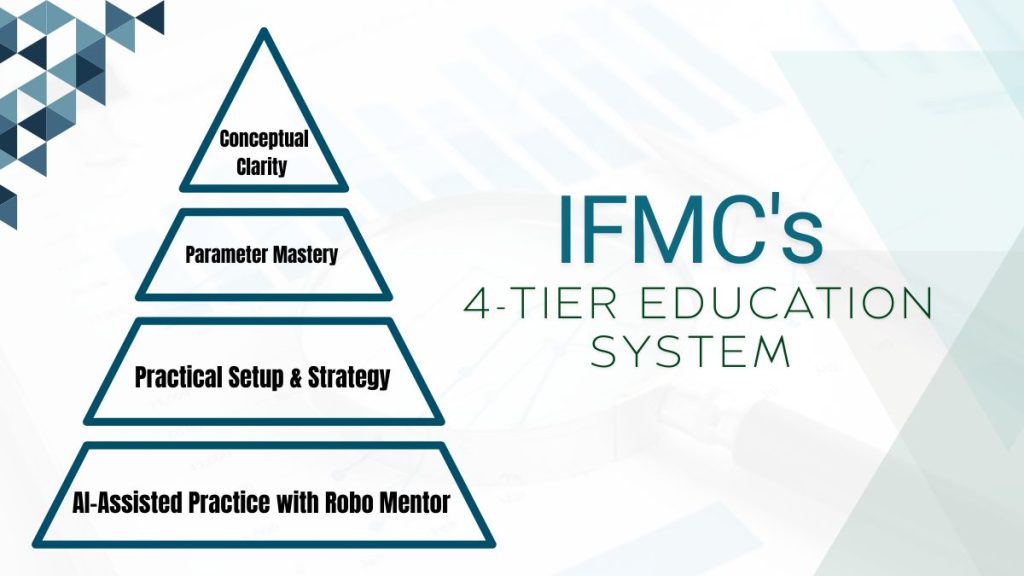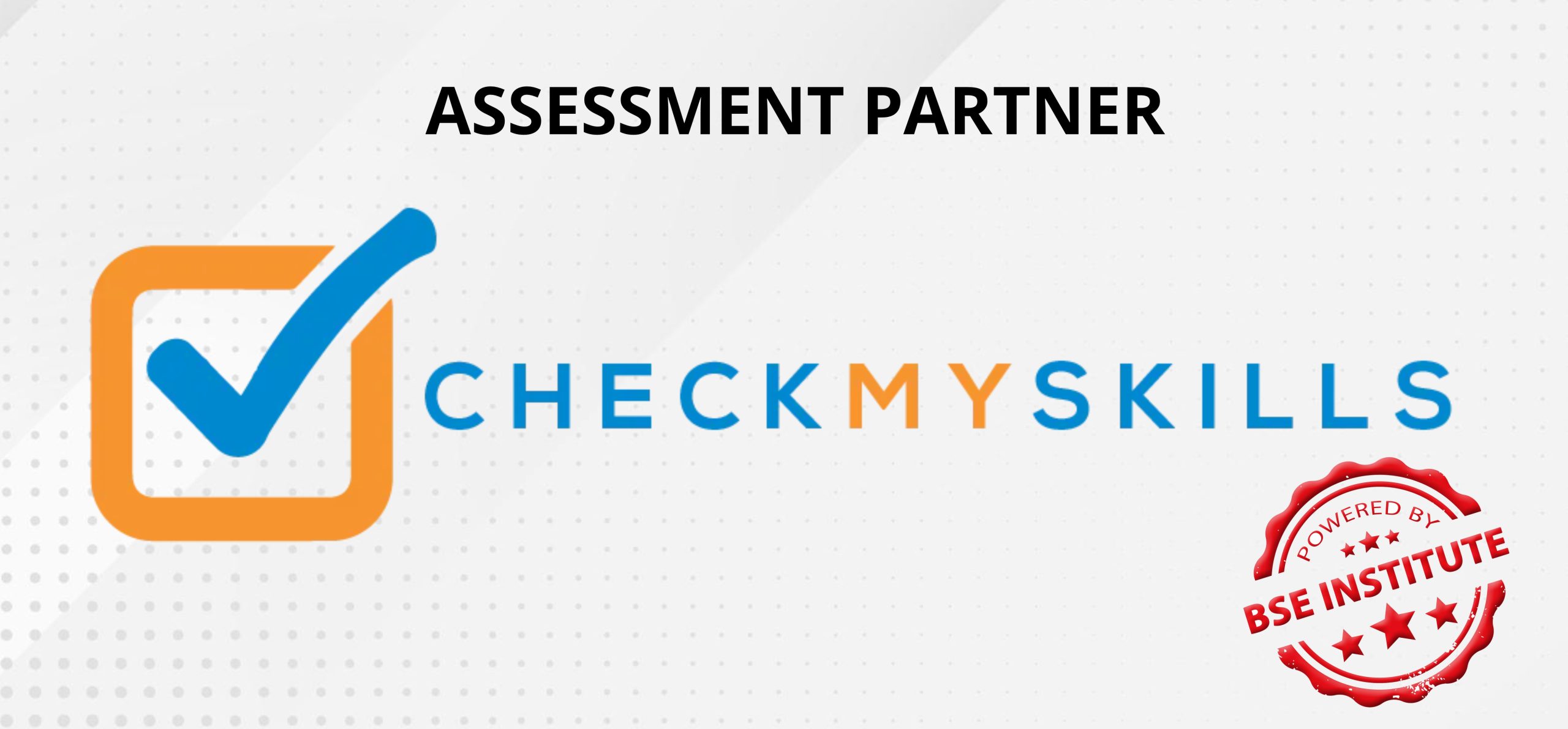Financial modeling is the process of creating a summary of a company’s future financial performance. Financial modelers use this information to make decisions about investments, corporate strategy, and business operations.
There are many different types of financial models, and the best stock market online course from IFMC will teach you how to build them from scratch. The financial modeling course in Delhi covers the use of Excel for Financial Modeling, as well as an introduction to Financial Modeling with PowerPoint.
Financial Modeling is a complex topic, but the best online courses will make it easy to understand and give you the skills you need to build your own models. Once you have completed a course, you will be able to apply your new skills to real-world scenarios and make better investment decisions.
Financial Modeling Demand
In today’s economy, financial modeling is in high demand. Companies are always looking for ways to improve their bottom line, and financial modeling can help them do just that. By forecasting future income and expenses, businesses can make better decisions about where to invest their money. They can also use financial models to assess the risks and potential rewards of new projects. As a result, demand for financial modelers is expected to continue to grow in the coming years. If you’re looking for a rewarding career with great job prospects, then financial modeling is a great option to consider.
IFMC® Skill Categories & Learning Objectives
IFMC Institute of Financial Market Courses offers a wide range of courses that cater to different skill categories. Each course is designed to help the learner achieve specific learning objectives. IFMC has a team of experienced and qualified faculty members who are experts in their respective fields. They use state-of-the-art teaching methodology and technology to deliver the best possible learning experience to the students.

IFMC also has a well-equipped campus with all the modern amenities that are required for a comfortable learning environment. IFMC’s commitment to providing quality education is reflected in its accreditation by the National Stock Exchange (NSE). IFMC is also a member of the Association of Financial Market Courses (AFMC). IFMC’s other courses include the Certificate in Financial Markets (CFM), Diploma in Financial Markets (DFM), and Advanced Diploma in Financial Markets (ADFM), Financial Modeling course.
IFMC also offers customized courses for corporates and other organizations. IFMC’s courses are designed to meet the changing needs of the financial markets and to keep pace with the latest developments in the industry. IFMC’s aim is to produce world-class professionals who are equipped with the latest knowledge and skillsets required for success in the ever-changing world of finance.
Why Learn on IFMC Online?
IFMC Institute of Financial Market courses offers a broad range of skill development courses which are classified under different categories. The categories are Technical Analysis, Fundamental Analysis, Derivatives, Options, Mutual Funds, IFMC Learning Specializations and International certifications. Each category has a number of learning objectives that IFMC students are expected to achieve upon completion of the course.
IFMC courses are designed to provide students with the necessary skills and knowledge to succeed in the financial markets. The skills and knowledge learned in IFMC online courses will help students make informed decisions when investing in the financial markets. IFMC courses are an excellent way for students to gain the skills and knowledge needed to succeed in the financial markets.
Frequently Bought Together
MADE combo (UDTS + Made = next step towords accuracy), Stock Market Course for Professionals Advanced (includes Stock Market Course for Beginners, Uni-Directional Trade Strategies, Technical Analysis Course, Fundamental Analysis, Option Strategies Course by Manish Taneja, and Market Analysis by Data and Event)
What Do Financial Modeling Courses Cost?
If you’re interested in pursuing a career in finance, you’ll need to be well-versed in financial modeling. Financial modeling courses can teach you the skills you need to build accurate models that forecast future financial performance. These courses can be expensive, but they’re a worthwhile investment if you want to break into the finance industry.

Many financial modeling courses cost between INR 5000 and INR 10,000, but IFMC online course on financial modeling can cost only up to INR 2,700 keep in mind that many finance jobs require experience with financial modeling. Therefore, taking this course can give you a leg up on the competition when you’re applying for jobs.
Additionally, many employers are willing to reimburse employees for the cost of financial modeling courses. So, if you’re interested in pursuing a career in finance, don’t let the cost of financial modeling courses dissuade you. With proper planning and budgeting, taking a course can be a wise investment that will pay off in the long run.
Can I Learn Financial Modeling on My Own?
Anyone can learn anything on their own if they are willing to put in the time and effort. This is especially true when it comes to financial modeling. With the right motivation and some basic direction, you can teach yourself financial modeling just as easily as you could learn any other new skill.
The first step is finding reliable resources that will provide a solid foundation for your learning. There are plenty of books and online courses that can get you started. Once you have a good understanding of the basics, you can start practicing by building models for real-world scenarios. As you gain experience, you’ll be able to develop your own methods and learn more advanced techniques. With persistence and practice, there’s no reason why you can’t become an expert financial modeler – all on your own.
What Is Financial Modeling?
Financial modeling is a tool that can be used to forecast a company’s financial performance. The model is created by analyzing historical data and making assumptions about future conditions. The goal of financial modeling is to provide a framework for decision-making.
Financial modeling can be used to assess the viability of a new business venture, to evaluate the impact of changes in economic conditions, or to generate projections for financial planning purposes. The model can be as simple or as complex as the situation warrants. A basic model might include only revenue and expenses, while a more sophisticated model might take into account factors such as inflation, interest rates, and tax rates.
Financial modeling is an important tool for anyone involved in making decisions about the future of a business. By providing a framework for analyzing potential outcomes, it can help leaders make informed choices about where to focus their resources.
Financial modeling course free Demo
What is financial modeling course?
If you’re looking to learn financial modeling, there’s no better way to do it than with a financial modeling course. Financial modeling courses teach you the skills and techniques you need to build accurate, realistic financial models. With a financial modeling course, you will learn how to use spreadsheet software to create financial models are used for decision-making purposes. You’ll also learn how to interpret and analyze financial data, and how to communicate your findings to decision-makers. If you’re interested in a career in finance, or if you simply want to learn more about financial modeling, a financial modeling course is a great place to start.
Is financial modeling hard to learn?
When it comes to financial modeling, there is a lot of debate about how difficult it is to learn. Some people argue that it is a complicated and challenging process, while others believe that it is relatively straightforward. However, the truth is that financial modeling can be both simple and complex, depending on the individual. For some people, the concepts and calculations involved in financial modeling are relatively easy to understand.
However, for others, the same concepts can be confusing and difficult to grasp. The level of difficulty also depends on the specific type of financial modeling being performed. For example, some types of models are more complex than others. Ultimately, whether or not financial modeling is hard to learn depends on the person trying to learn it.
How do online financial modeling courses work?
Online financial modeling courses provide a flexible and convenient way to learn about this important career skill. But how do they work? IFMC online courses are structured around a series of modules, each of which covers a specific topic. For example, a financial modeling course might include modules on Excel, financial statements, and valuation.
Once you have completed all of the modules, you will take a final exam to test your knowledge. In order to complete the financial modeling course, you will need to achieve a passing grade on the exam. Online financial modeling courses offer a number of advantages over traditional classroom-based courses. For one thing, they are usually more affordable.
In addition, they offer more flexibility, since you can study at your own pace and complete the course on your own schedule. Finally, online courses provide a more immersive learning experience, since you can put what you have learned into practice immediately by working on real-world projects. Whether you are just starting out in your career or looking to take it to the next level, an online financial modeling course can give you the skills you need to succeed.
Financial Modeling benefits
Financial modeling is a powerful tool that can help businesses make better decisions. By creating a detailed model of a company’s financial situation, businesses can see the potential impact of different courses of action and make informed decisions about where to allocate resources. Financial modeling can also help businesses to identify risks and opportunities, and to develop strategies for dealing with them. Perhaps most importantly, financial modeling can help businesses to understand their financial situation and to make sound decisions about the future. With so many benefits, it’s no wonder that financial modeling is increasingly being used by businesses of all sizes.
From an IFMC Financial Modeling student
As a student of IFMC Financial Modeling Course, I have learned a lot about how to build and interpret financial models. This has been an invaluable skill in my work as an analyst, and I believe it would be useful for anyone who wants to understand the inner workings of the financial world. The modeling skills I have acquired have allowed me to quickly and accurately assess the impact of proposed changes on a company’s bottom line. This has been essential in helping my clients make sound investment decisions. I believe that IFMC’s training is second to none, and I would highly recommend their courses to anyone interested in learning more about financial modeling.
Final Verdict
It’s official: the Financial Modeling Course is the best way to learn about finance. This comprehensive course covers everything from Excel and Financial Statements to Valuation and Financial Modeling. And it’s taught by some of the top finance professionals in the industry.
Here’s what makes the Financial Modeling Course so special:
- It’s comprehensive. In the course you’ll learn about Excel, Financial Statements, Valuation, and Financial Modeling.
- It’s taught by top finance professionals. These are people who have worked in the industry and know what they’re talking about.
- It’s interactive. The course includes a number of exercises and real-world examples to help you learn the material.
- It’s flexible. You can take the course at your own pace and fit it into your schedule.
If you’re serious about learning finance, then the Financial Modeling Course is the best way to do it. enroll today and get started on your journey to financial success!
Taught by Industry Experts
If you’re looking to get ahead in your career, there’s no better way to learn than from industry experts. With the Financial Modeling Course from IFMC Institute Online, you’ll gain the skills and knowledge you need to be successful in today’s competitive marketplace. Taught by experienced professionals, this course will give you a solid foundation in financial modeling, valuation, and investment analysis. Also you will learn how to use Excel and other software programs to build financial models and conduct market research. Enroll today and get started on your path to success.
Equity Research

If you’re looking for a career in finance, you may be wondering what equity research is all about. Equity research is the process of analyzing a company’s financial statements and performance to determine its value. Financial modeling is a key part of equity research, as it allows analysts to predict a company’s future performance and identify potential risks and opportunities. Equity research is a complex process, but it can be an incredibly rewarding career for those with the passion and skillset for it. Financial modeling is a hotly contested skill, and many employers are looking for analysts who have experience in this area. If you’re interested in pursuing a career in equity research, be sure to brush up on your financial modeling skills!
Difference between financial modeling and valuation
Financial modeling and valuation are two essential tools for any investor. Both techniques can be used to assess the potential return of an investment, as well as the risks involved. However, there are some key differences between the two approaches.
Financial modeling is a process of creating a simplified representation of a financial situation. This model can then be used to run various scenarios and test different investment strategies. Valuation, on the other hand, is a process of determining the worth of an asset. This technique is often used to determine the fair market value of a security or company.
Both financial modeling and valuation have their own strengths and weaknesses. Financial modeling is best used for assessing the potential return of an investment under different conditions. Valuation, on the other hand, is better suited for estimating the fair market value of an asset. Ultimately, both techniques are important tools that any investor should understand.
Investment banking and financial modeling
Investment banking and financial modeling are two of the most important skills for anyone interested in a career in finance. investment banking involves the raising of capital for businesses, while financial modeling is used to assess the viability of potential investments. Investment bankers advise companies on issuing new equity and debt, as well as managing mergers and acquisitions.Both skills are essential for anyone looking to work in the finance industry.

Investment banking is a complex process that requires a deep understanding of the markets and an ability to identify opportunities. To be successful, investment bankers must be able to think creatively and come up with innovative solutions to problems. They must also be able to sell their ideas to clients and investors.
Financial modeling is used to evaluate the potential return on investment of a project or company. Financial modelers build models that take into account different factors such as risk, return, and cost. They use these models to make decisions about whether or not to invest in a particular company or project. Financial modeling is a critical skill for anyone working in finance, as it allows them to make informed decisions about where to allocate capital. Financial modeling is used to evaluate the potential performance of investments, and it is an essential tool for investment bankers
Both investment banking and financial modeling are essential skills for anyone interested in a career in finance. Anyone looking to get ahead in the finance industry needs to master these skills.
Difference between financial analysis and financial modeling
Financial analysis and financial modeling are two key tools used by businesses to make informed decisions about their finances. Both approaches have their own strengths and weaknesses, so it’s important to choose the right tool for the job at hand.
Financial analysis is a broad term that covers a range of activities, from tracking expenditure to forecasting future income. It’s a vital tool for gaining insights into a business’s financial health, but it can be time-consuming and complex. Financial modeling, on the other hand, is a specific technique used to simulate future financial scenarios. It’s typically used to assess the feasibility of business plans or investment projects, and it can be adapted to answer a wide range of “what if?” questions. Financial modeling is generally faster and more flexible than financial analysis, but it can be less accurate if the assumptions underlying the model are not sound.
So, which approach should you use? The answer depends on your specific needs. If you need a detailed picture of your business and financial situation, then financial analysis is the way to go. But if you’re looking for guidance on how a particular decision might affect your bottom line, financial modeling is probably a better bet.





















